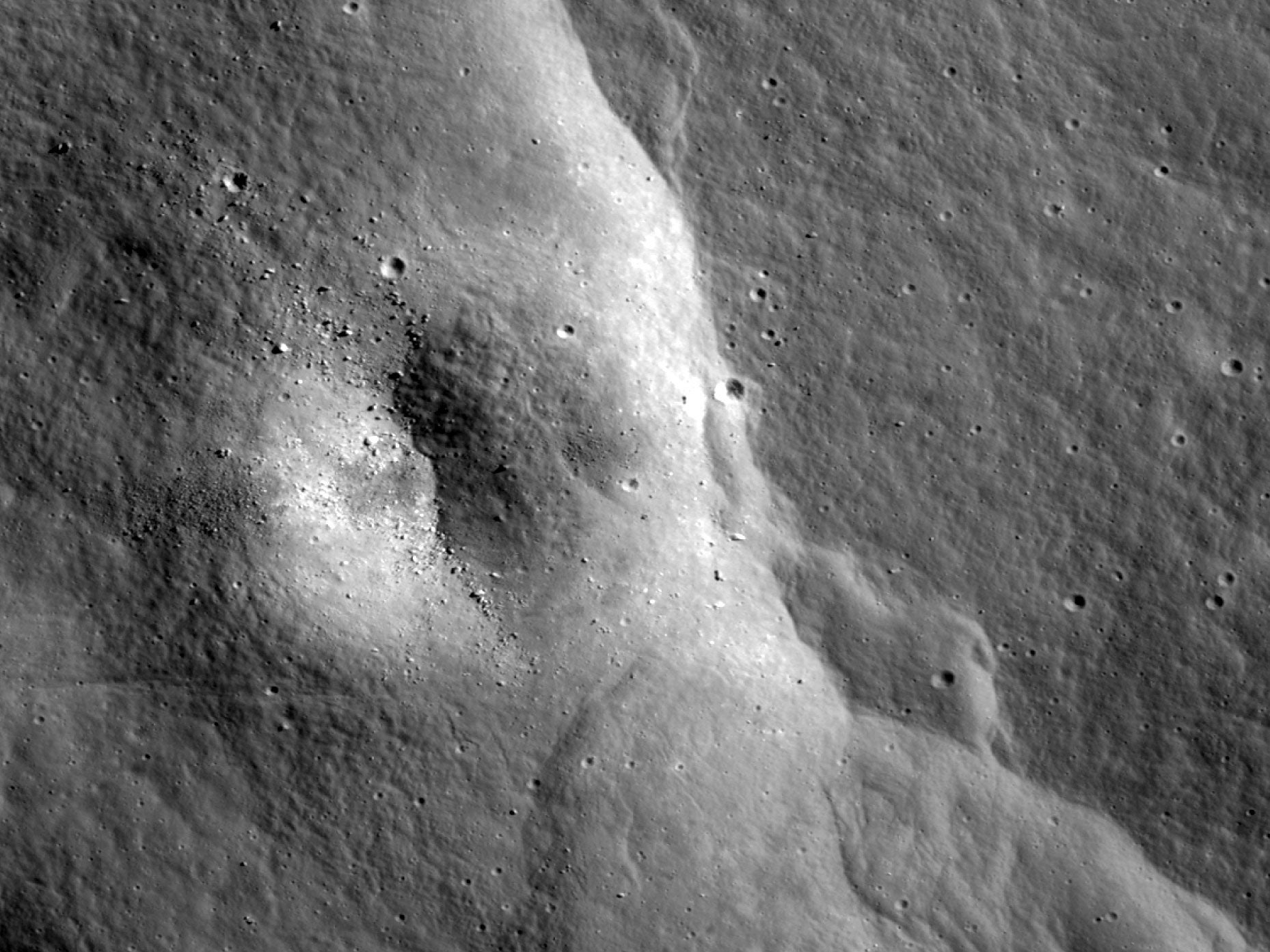Earth’s gravity is pulling cracks in the moon, scientists say
The same force could be causing 'moonquakes'

Earth’s gravity is pulling at the moon, leaving huge faults in its crust, according to scientists.
The moon pulls at our surface and helps cause the tides, as most people know. But the force is actually going back the other way — and the pull is opening up huge cracks in its surface.
The new findings come from data provided by Nasa’s Lunar Reconnaissance Orbiter, which launched to orbit the moon in 2009. In 2010, it showed scientists that the moon was gradually shrinking — and provided pictures of 14 different faults or cliffs on the planet’s surface.
Now it has taken more pictures in its six years of orbit, and scientists have found 3,000 faults, and expect to find more. They are created by the movement of the materials in the moon’s crust, which move and thrust upwards.
“There is a pattern in the orientations of the thousands of faults, and it suggests something else is influencing their formation, something that’s also acting on a global scale,” Tom Watters, the lead author of the new study, said in a statement. “That something is the Earth’s gravitational pull.”
The moon is gradually moving away from Earth, which contributes toward extra stress on the lunar crust. That combined with other forces on the moon’s surface to lead to the scarps, or cliffs.
Those cliffs are still very young, according to scientists, and new ones are still forming. They may also be causing “moonquakes” as the surface moves, which scientists say could be confirmed using a seismic network of the kind that measure earthquakes.
“The discovery of thousands of young fault scarps, influenced by tidal forces from Earth, is an exciting new dimension to our understanding of the close relationship between our planet and the Moon,” Watters said.
Join our commenting forum
Join thought-provoking conversations, follow other Independent readers and see their replies
Comments
Bookmark popover
Removed from bookmarks